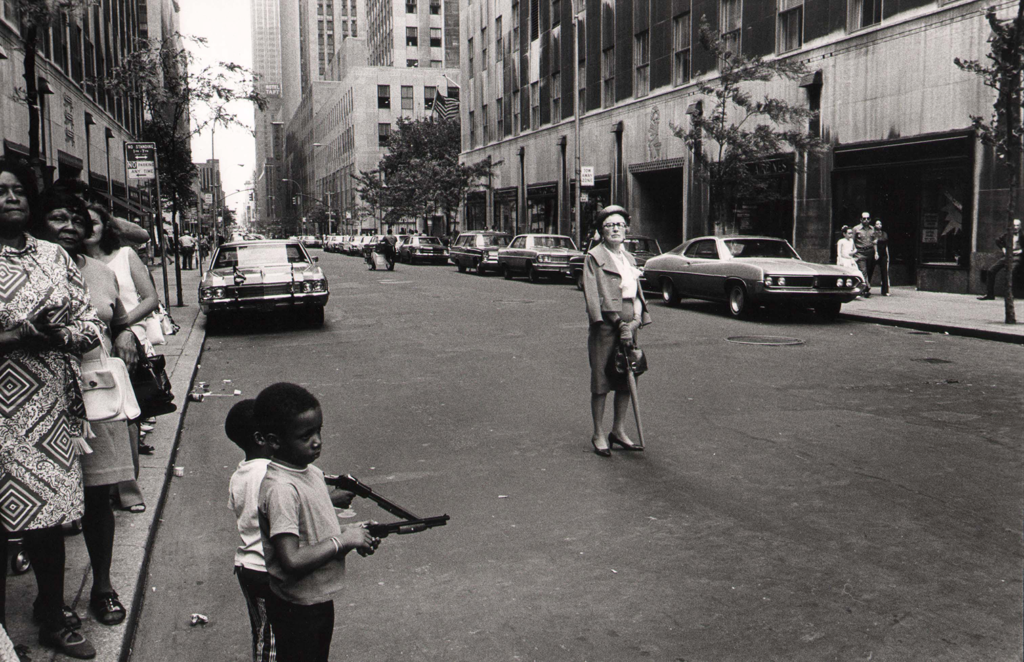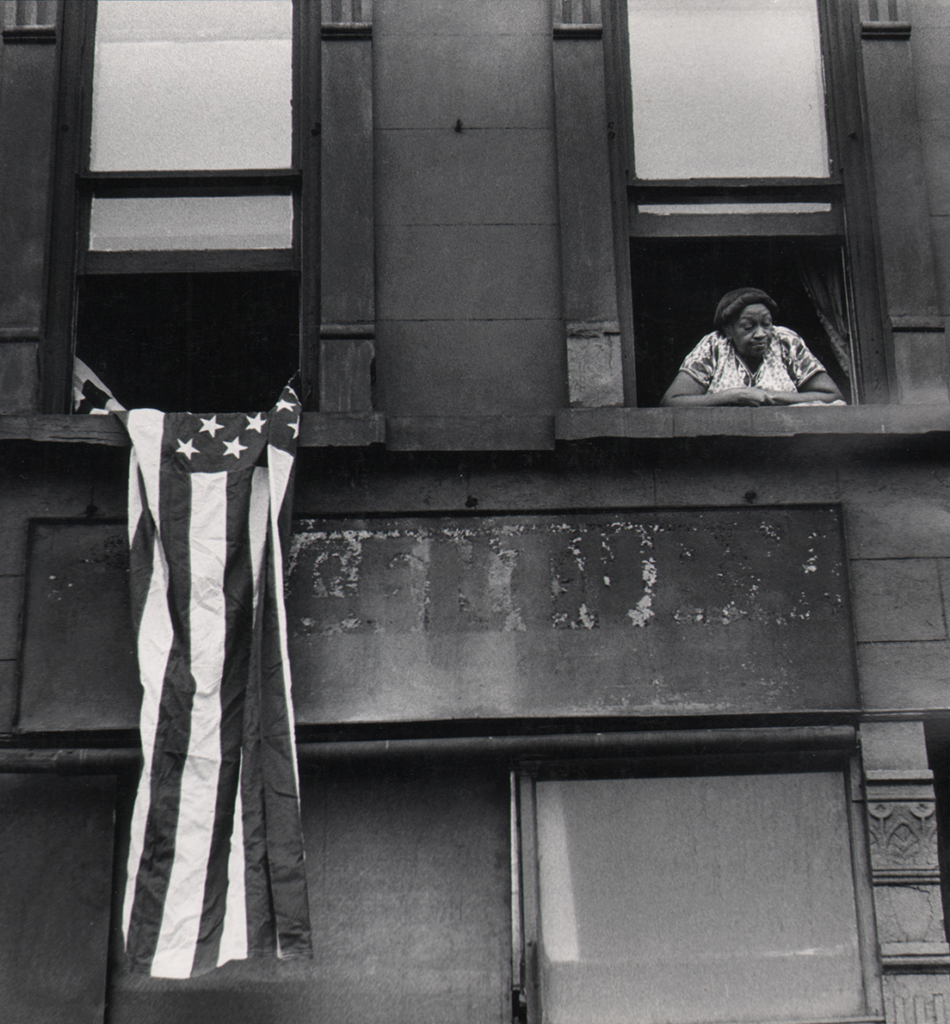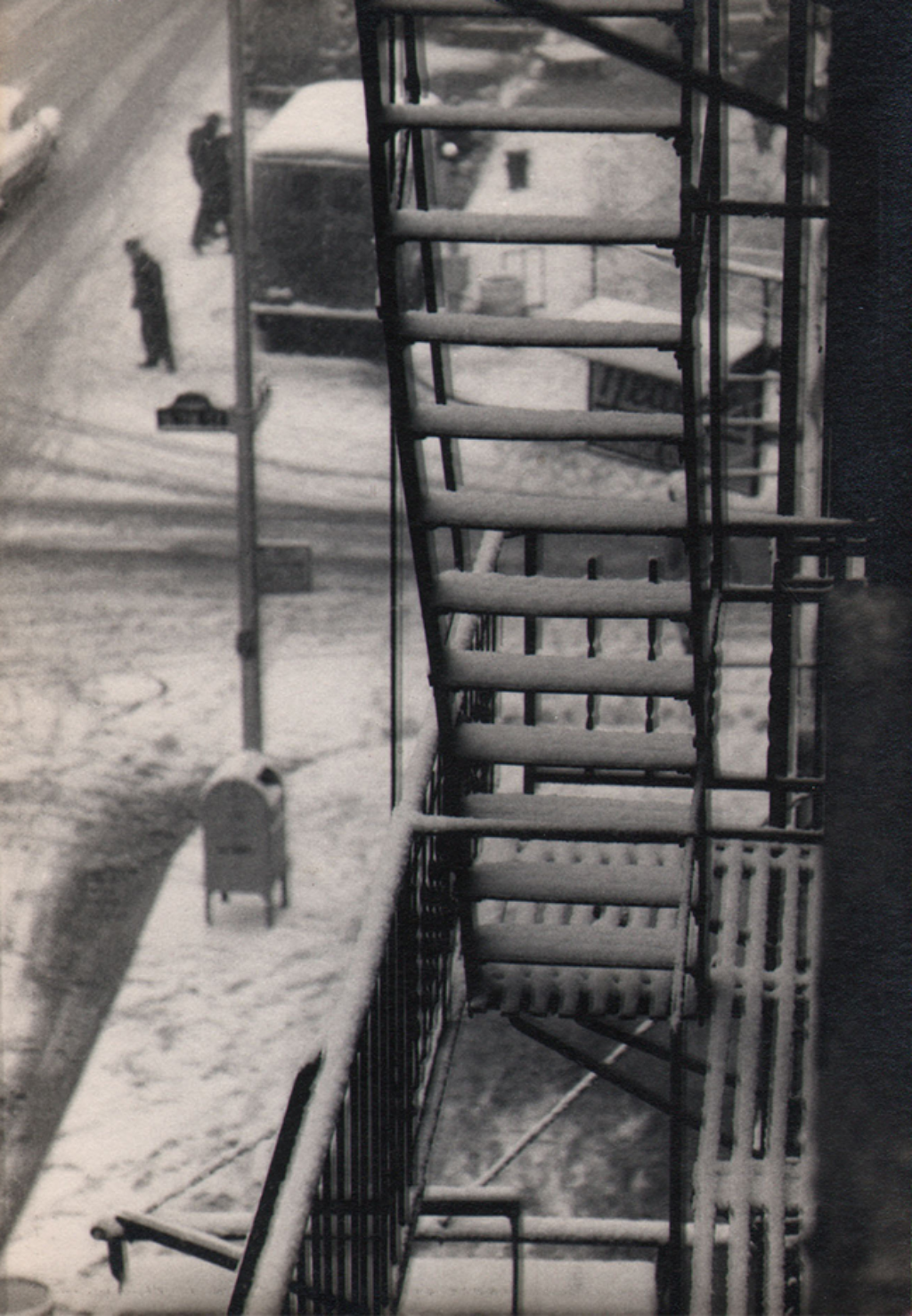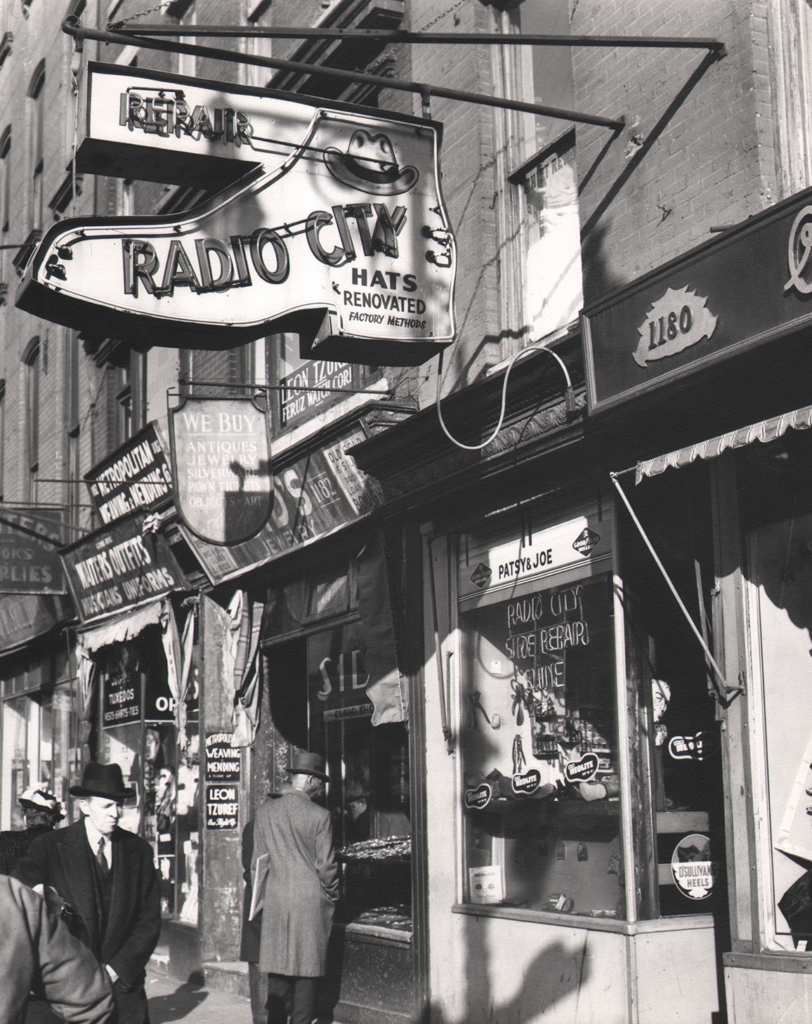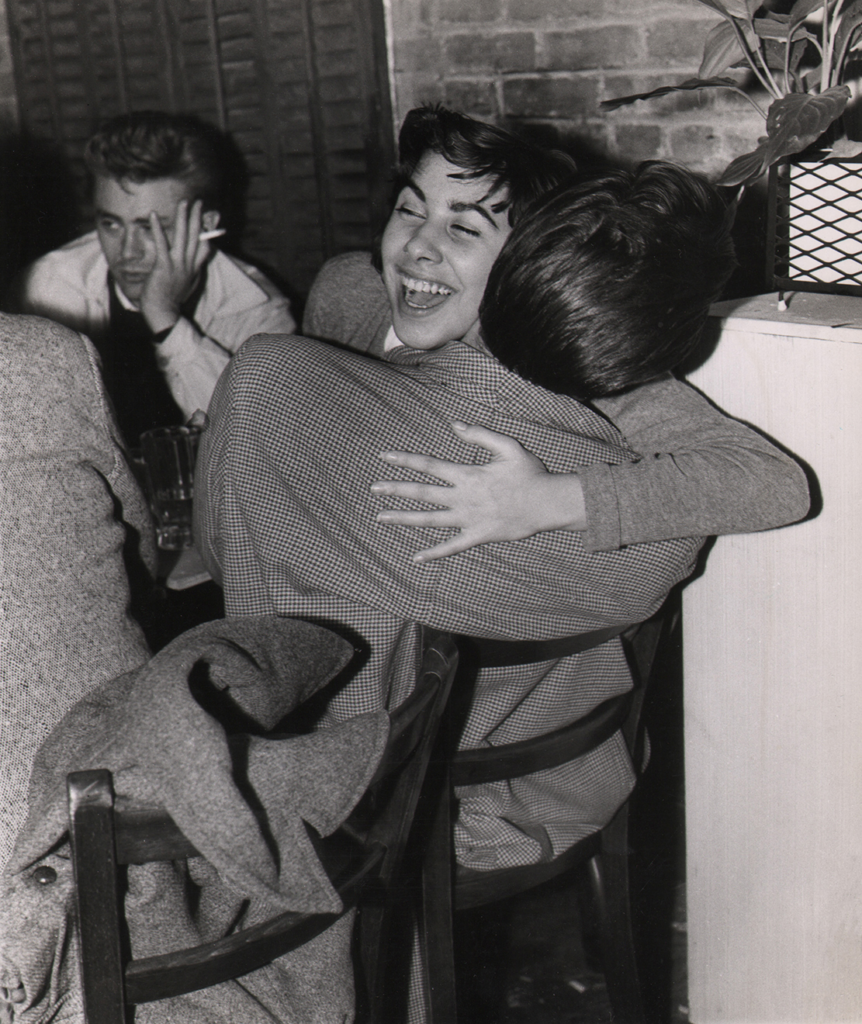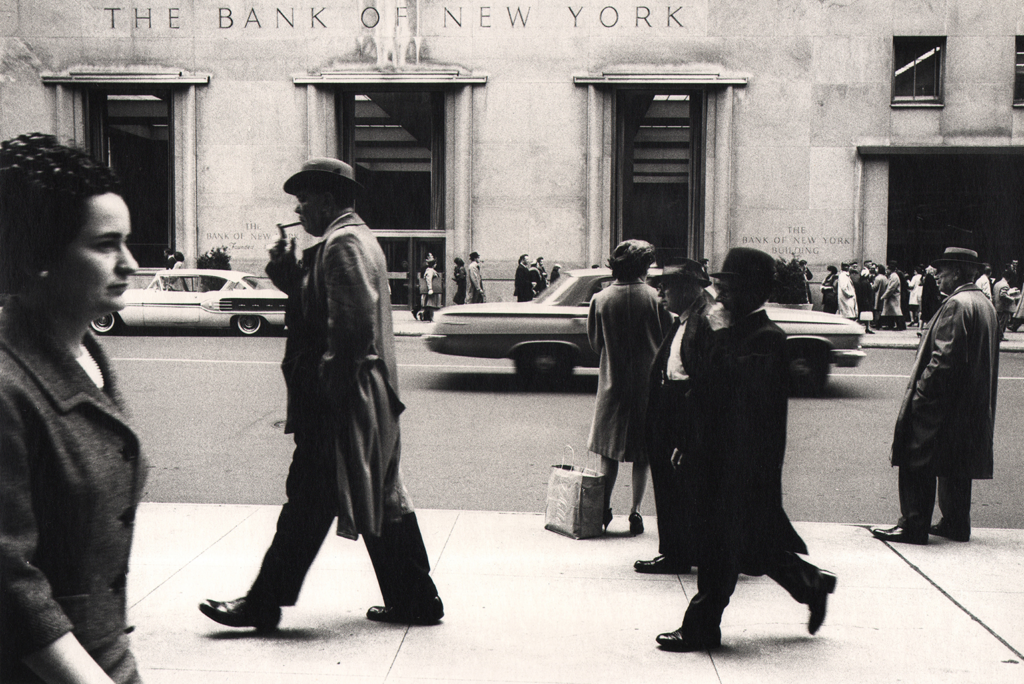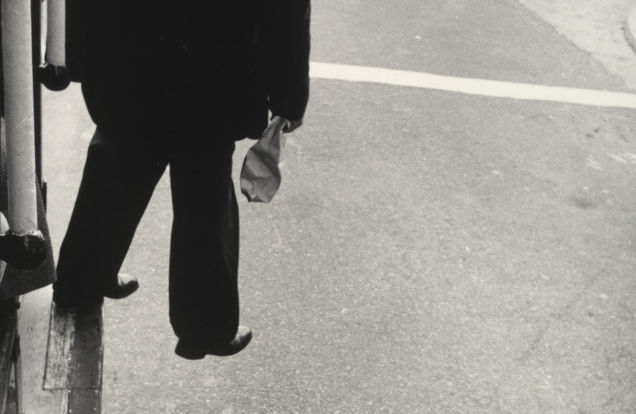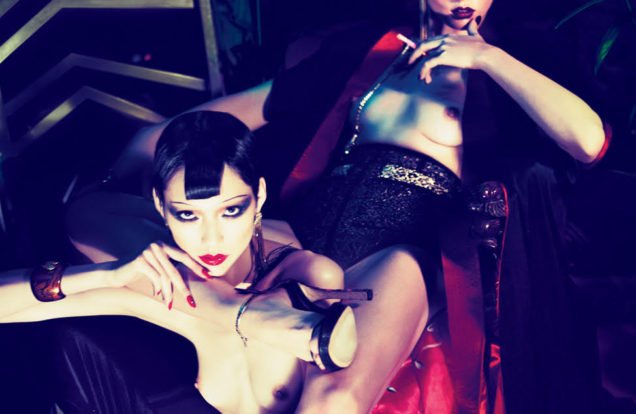A POSTWAR VIEW
New York Stories at the Keith de Lellis Gallery
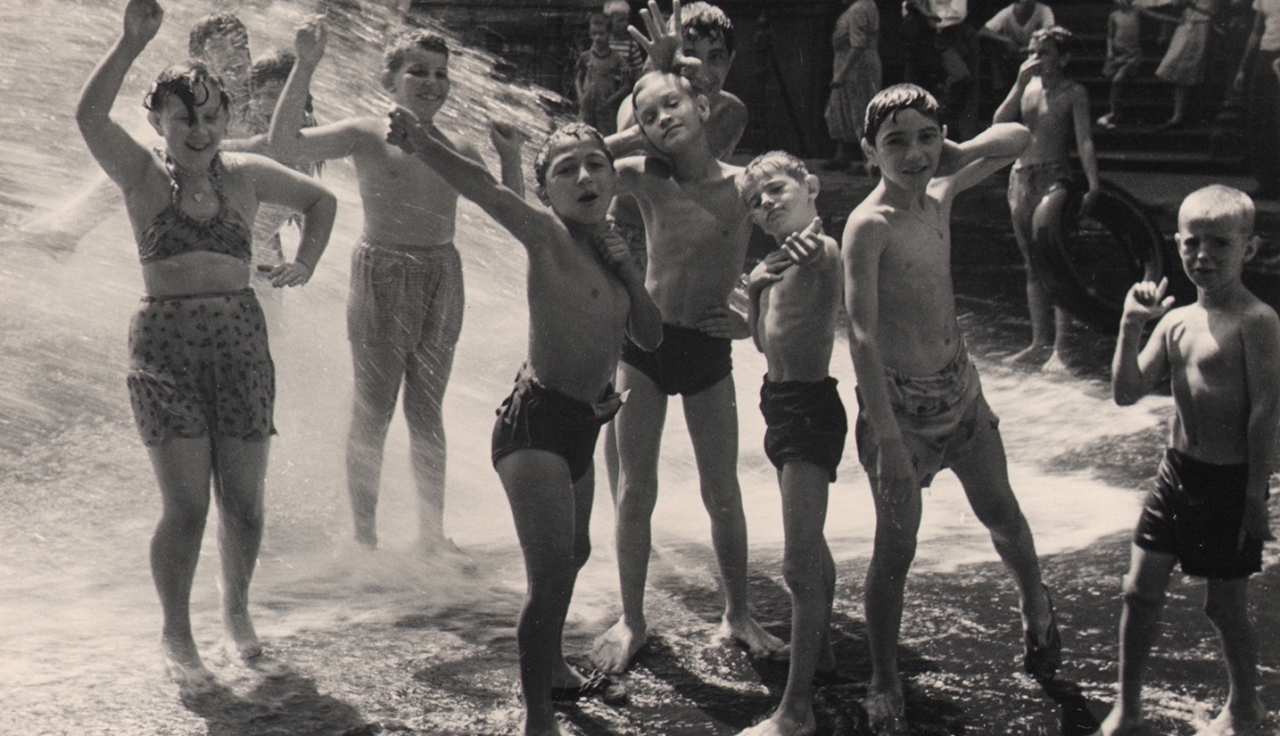
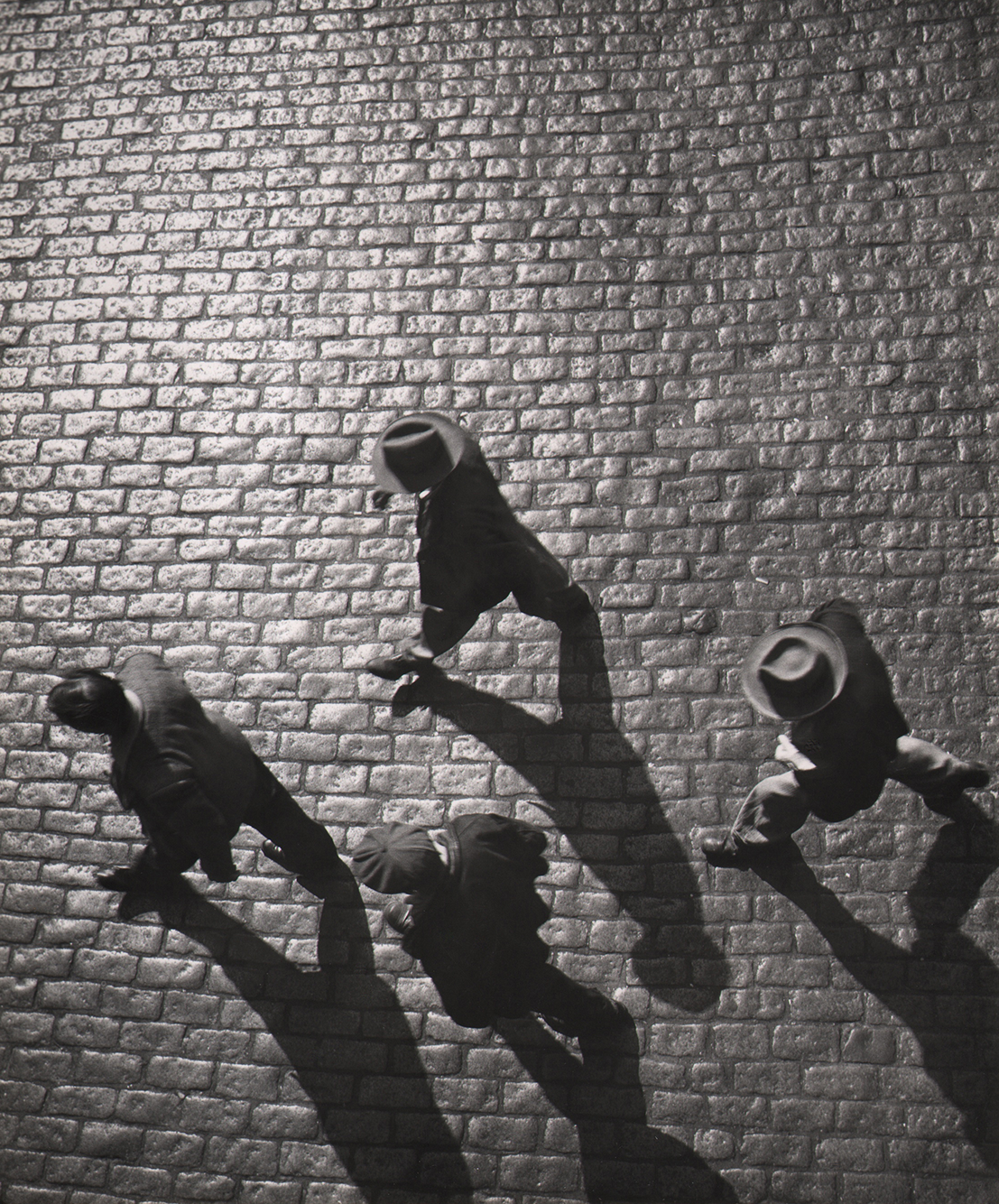
NEW YORK STORIES: VINTAGE POSTWAR PHOTOGRAPHS at the Keith de Lellis Gallery showcases 14 photographers who captured the contours and contrasts of the city. The black and white photos explore daily life from 1945 to 1975. Through their lens, these artists tell the visual history of New York City as they chronicle different neighborhoods, the architectural landscape and pedestrian life. While some of the work comes from well-known photographers such as Weegee and Todd Webb, some are new names. “The gallery specializes in rediscovering photographers that were well-known in the period they were working and reintroducing them to the marketplace. I tried to include women, African American photographers to make the show more diverse. We have Beuford Smith, Anthony Barboza, we have Esther Bubley and Jeanne Ebstel representing those categories,” said Keith de Lellis.
Some of the featured photographers focused on Manhattan’s architecture and landmark sites. Other artists, instead, captured the soul of the city through its inhabitants. Jeanne Ebstel, in the summer of 1947, photographed a group of carefree children wearing swimsuits as they played in the street with water spraying behind them. Simpson Kalisher’s 1959 photo documents an afternoon in midtown Manhattan as anonymous individuals move about their daily lives. Eugene Smith’s series, As Through My Window I Sometimes Glance, observes the everyday goings-on outside his loft window. Unknowing pedestrians struggle to navigate snowy sidewalks as Smith photographs from above. “These are from 1957 to 1958. He (Smith) was a Life Magazine photographer, but this work was a little more personal than some of the other photographs that he made that have historical significance,” said de Lellis.
Beuford Smith and Anthony Barboza, two African American photographers, were part of Kamoinge, a collective of black photographers founded in 1963. The group took photos of black life in its complexity rather than the stereotypical and clichéd approach. Barboza’s 1970 photo of a well-heeled white, woman, in the middle of the street looking at two African American children with toy guns “is a very tense photograph,” explained de Lellis. “It expresses the relationship between the African American community and the white community and the level of tension that may have existed for this photographer.” Beuford Smith’s Flag Day in Harlem (1976) is an homage to his hero, the late photographer Robert Frank. It’s an image that reveals the same sensibility as in Robert Frank’s work, The Americans.
The exhibit’s 56 photographs are not only a history lesson of postwar New York City but also provides an understanding of why the city has been a beguiling muse for photographers. “New York City is a very photogenic city because it’s so populated with so many unique characters passing each other on the street, shared de Lellis, “it’s a great stomping ground for photographers that want to capture a visually exciting moment.”
New York Stories will be on view at the Keith de Lellis Gallery through March 27, 2020, in New York City.
All images courtesy Keith de Lellis Gallery
